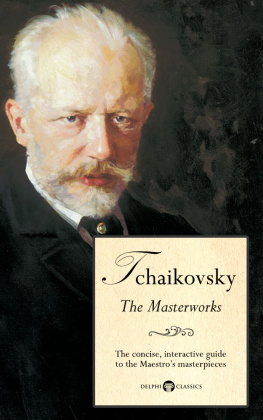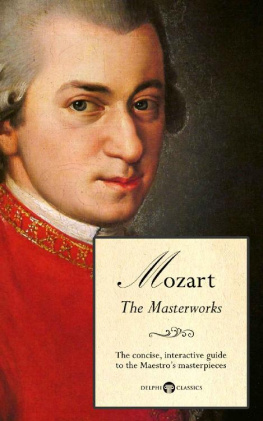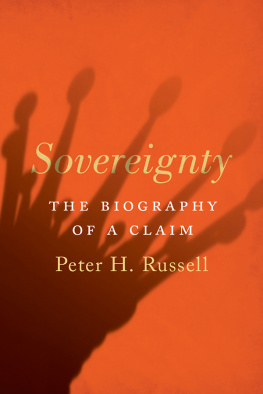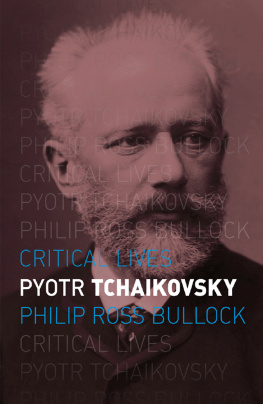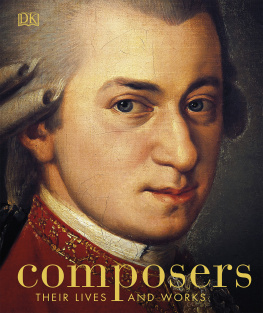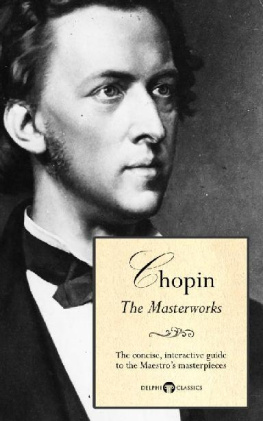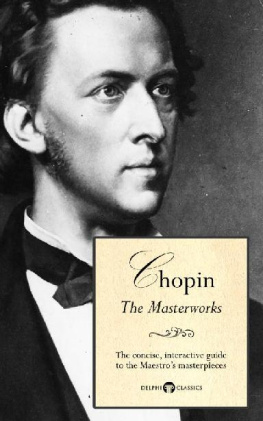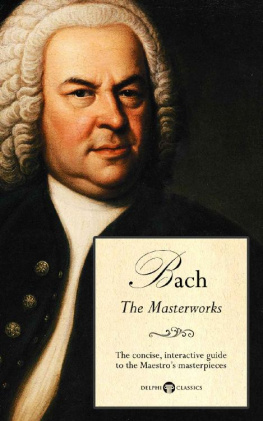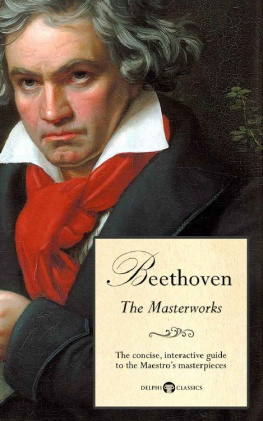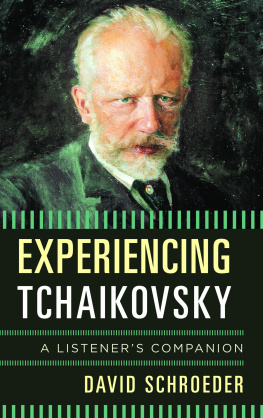

Pyotr Ilyich Tchaikovsky
(1840-1893)

Contents

Delphi Classics 2018
Version 1

Delphi Great Composers
Pyotr Ilyich Tchaikovsky

By Delphi Classics, 2018
COPYRIGHT
Delphi Great Composers - Pyotr Ilyich Tchaikovsky
First published in the United Kingdom in 2018 by Delphi Classics.
Delphi Classics, 2018.
All rights reserved. No part of this publication may be reproduced, stored in a retrieval system, or transmitted, in any form or by any means, without the prior permission in writing of the publisher, nor be otherwise circulated in any form other than that in which it is published.
ISBN: 978 1 78656 123 7
Delphi Classics
is an imprint of
Delphi Publishing Ltd
Hastings, East Sussex
United Kingdom
Contact: sales@delphiclassics.com

www.delphiclassics.com
The Masterworks

Votkinsk, an industrial town in the Udmurt Republic, Russia Tchaikovskys birthplace

The composers birthplace now functions as the Tchaikovsky Museum

Tchaikovsky as a young man, c. 1863

Statue of Tchaikovsky in his hometown
The Masterworks: A Short Guide

In this section of the eBook there are concise introductions for Pyotr Ilyich Tchaikovskys most celebrated works. Interactive links to popular streaming services are provided at the beginning and end of each introduction, allowing you to listen to the music you are reading about. The text is also accompanied with contextual images to supplement your reading and listening.
There are various options for streaming music, with most paid services charged competitively at the same rate and usually offering a similar range of albums. Various streaming services offer a free trial ( Google Play Music , Amazon Music Unlimited and Apple Music ) and Spotify offers a free service after you watch a short advertisement. Amazon Prime members can also enjoy a wide range of free content from Amazon Prime Music . If you do not wish to subscribe to a streaming service, we have included YouTube links for free videos of the classical pieces.
Please note: different eReading devices serve hyperlinks in different ways, which means we cannot always link you directly to your chosen service. However, the links are intended to take you to the best option available for the piece of music you are reading about.
High-resolution scores for the music would be too large in size to include in an eBook; however, we have provided links to free scores available at IMSLP , the International Music Score Library Project, which can be accessed from the SCORES links in each chapter.
Now, settle back and relax as you immerse yourself in the music and life of Tchaikovsky...
Symphony No. 1 in G minor, Op.13

AMAZON APPLE GOOGLE SPOTIFY YOUTUBE SCORES

The great Russian composer Pyotr Ilyich Tchaikovsky, a leading figure of the Romantic era, was born in Votkinsk, a small town in Vyatka Governorate in the Russian Empire. He came from a family with a long line of military service, as his father, Ilya Petrovich, had served as a lieutenant colonel and engineer in the Department of Mines and his grandfather served as city governor of Glazov in Vyatka. His great-grandfather was a Ukrainian Cossack named Fyodor Chaika (the name Tchaikovsky is the derivative of the Ukrainian family name Chaika - seagull), who distinguished himself under Peter the Great at the Battle of Poltava in 1709. Tchaikovskys mother, Alexandra Andreyevna, was the second of Ilyas three wives, eighteen years younger than her husband, and of French origin on her fathers side. Both of young Pyotrs parents were trained in music, as a posting to a remote area of Russia often demanded entertainment, whether in private or at social gatherings. Tchaikovsky had six siblings and became closest to his sister Alexandra and twin brothers Anatoly and Modest.
Under his governess, he was a quick learner and by the age of six he had become fluent in French and German. He had begun piano lessons from the age of five and within three years he was as skilled at reading sheet music as his teacher. His parents, initially supportive of his musical endeavours, hired a tutor, bought an orchestrion (a barrel organ that could imitate elaborate orchestral effects) and encouraged his piano study. However, in 1850 they decided to send him to the Imperial School of Jurisprudence in Saint Petersburg, from which they had both graduated. This establishment principally served the lesser nobility and they hoped it would prepare their promising son for a career as a civil servant. The only musical careers available in Russia at that time, unless you were a member of the affluent aristocracy, were as a teacher in an academy or as an instrumentalist in one of the Imperial Theatres; these positions were regarded as on the lowest rank of the social ladder, with no more rights than afforded to peasants. The fathers income was growing increasingly uncertain, so Tchaikovsky, aged ten, was dispatched to two years boarding at the preparatory school, 800 miles from his family home.
This early separation from his mother caused an emotional trauma that would stay with him for the rest of his life and was intensified by her death from cholera in 1854, when he was fourteen. The loss of his mother also prompted Tchaikovsky to make his first serious attempt at composition, a waltz in her memory. Isolated, Tchaikovsky compensated for his loss through friendships with fellow students that became life-long, including with Aleksey Apukhtin and Vladimir Gerard. The school provided for students to regularly attend the opera and Tchaikovsky would improvise at the schools harmonium on themes he and his friends had sung during choir practice. Meanwhile, he continued his piano studies under Franz Becker, an instrument manufacturer that made occasional visits to the school.
Next page
